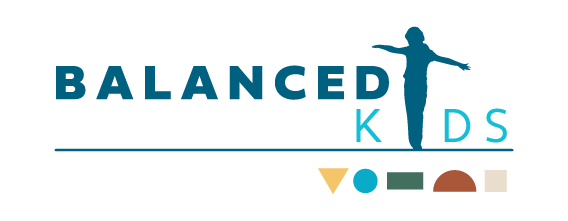What To Do After My Child Receives A Diagnosis
When your child receives a diagnosis, there is no right or wrong way to feel. There is no clear-cut answer, or any way that someone outside of your family can prepare you for how it will impact your family unit.
A diagnosis can bring relief, or it can trigger overwhelm.
It can connect a family or make them feel adrift.
Sometimes the feelings hit hard at first, other times, the feelings might arise randomly later on.
You may feel worried about all the ways this will follow your kid through life and find yourself catastrophizing the situation.
Maybe the lead up to the diagnosis itself put you through the paces, and now that you’ve received it in black and white, you're numb.
You may be facing parental guilt and shame thinking, “Should I have caught this? This isn't the life I wanted for them.”
You may face grief depending on the diagnosis… grieving who you wanted your child to be or the life you wanted them to have.
The short version of all of this is that you may feel all of the emotions, or you may feel none of them. There is no one size fits all response. It’s okay to just feel how you feel. And what Balanced Kids can help you with is that moment after the diagnosis, when parents are left wondering now what?
What to do after your child receives a diagnosis?
Give yourself a day or two to process the news, and then it’s time to get to work.
At the end of the day, a diagnosis is letters on a paper. It doesn't tell you how to parent your child or what they uniquely need in order to thrive.
While a diagnosis can provide pieces of the puzzle, as parents, we still need to do the digging to discover what skills they do or don’t have and then build as needed.
Regardless of the feelings you're processing around the news, I encourage you to view a diagnosis as an opportunity to more deeply understand your child and how their brain works. A chance to work with your child as the unique individual they are - regardless of a diagnosis - and learn what works best for them.
Taking the taboo nature of a diagnosis off the table in your household allows you to learn to play to your child’s strengths, accept them exactly as they are, and normalize their needs.
If you’ve found life feeling stressful post-diagnosis, here are a few tips for relieving those triggers -
Ensure that your doctor is not only well versed in the diagnosis, but sensitive to your family needs. Speak with them on an ongoing basis to better understand the diagnosis. The more deeply you understand your child's diagnosis from compassionate, trustworthy sources, the more confidence you will feel in learning how to approach it.
Speak with your child's school and see if they have support systems in place to help both you and your child. If they don’t, consider reaching out to Balanced Kids and ask about our advocacy services.
Connect with other parents whose children have received the same diagnosis. Learn how they have altered their parenting style to fit the needs of their child and family.
Read books about the diagnosis. Again, the more you understand it, the more confidence, self-trust, and comfort you will feel in being able to fulfill your child's needs.
Remember, it’s okay to feel however you feel about this news. With time, patience with yourself and your family, and a dedication to learning, you will learn to embrace your child’s wonderfully unique design.


